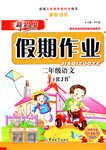题目内容
Wednesday, January 7,2009
A blacklist of 19 leading search engine portals (门户) and websites, including Google and Baidu, which “spread vulgar (lacking in good taste) content and harm the young people” has been published, the Chinese government said Monday.
According to Xinhua News Agency, six central departments conducted a month – long campaign to clean up the Internet of unhealthy and vulgar materials.
“The government will continue to punish or even shut down those shameful Websites that refuse to correct their wrongdoing.” Cai Mangzhao, director of the State Council Information Office, said. “Immediate action is needed to clean up the Internet environment.”
The government demanded the web portals, a number of video sharing sites, including Sina, Sohu and NetEase, Google in Chinese and other websites to remove vulgar photos after due notice but they failed and continued providing links to these unhealthy sites.
Google China’s spokeswoman Cui Jin, however, explained that “Google is neither the owner of those Websites nor does it spread (that) information intentionally. We have also adopted ‘safe search’ to block sites with such content automatically. ”
Baidu, NetEase. com. Inc and SINA Corp., in web statements on Wednesday, admitted their guilt, and apologized for failing to control such contend. Google China, on the other hand, promised to cooperate with Internet users and society to help build a healthy Internet culture. “After we received notice from relevant government departments, we cleaned up links to vulgar content that could have harmful effects on Internet users,” it added.
45. What is the text mainly about?
A. How the Chinese government manages the leading search engine portals.
B. How the leading search engine portals react to the government’s criticism.
C. What the government is trying to do to clean up the Internet environment.
D. What the leading search engine portals are doing to improve their service.
46. Which of the following is TRUE about Cai Mingzhao?
A. He works for the Ministry of Public Security.
B. He called on the shameful Web sites to correct their wrongdoing.
C. He apologized for failing to clean up the Internet of unhealthy materials.
D. He is working hard to make the definition of “spreading vulgar materials” clear.
47. According to the text, which company took the most positive attitude?
A. Google China B. NelEase. com. Inc.
C. SINA Corp. D. Baidu
48. We can learn from the last paragraph that .
A. China’s Internet environment is getting better and better
B. China still has a long way to go to build a cleaner Internet environment
C. China has made laws to protect the environment of the Interned
D. China has not realized the harm of illegal information from the Internet
45-48 CBAB
解析:
略

 新思维寒假作业系列答案
新思维寒假作业系列答案任务型阅读
认真阅读下列短文,并根据所读内容在文章后表格中的空格里填入最恰当的单词。
注意:每空格1个单词
People unhappy with the rich: Poll
There is growing dissatisfaction toward rich people, according to a new online poll. The poll by the China Youth Daily in collaboration(与…合作) with Sina.com has highlighted the apparent discontent (不满)over the country's widening income gap. Nearly 8,000 people filled in online questionnaires last week, and when asked to use three words to describe society's rich, the top responses were "extravagant"(奢侈的), "greedy" and "corrupt".About 57 percent of those polled said that "extravagant" was the best word to describe the rich, followed closely by "greedy".Ironically, despite their dissatisfaction, 93 percent of those polled wished they could be rich too, and that richer people should be "socially responsible".Some 33 percent of respondents also praised rich people for being "smart".Nearly 90 percent of respondents agreed that most people in society, including themselves, were willing to speak up for the poor but were reluctant to take action and actually do something for them.The survey comes on the heels of a heated debate over comments made by renowned economist Mao Yushi, who said he was "speaking for the rich and working for the poor".A report released by the Asian Development Bank last Wednesday revealed that China's Gini coefficient - an indicator of the wealth divide - rose from 0.407 in 1993 to 0.473 in 2004.
An earlier CASS report said that the richest 10 percent of Chinese families now own more than 40 percent of all private assets, while the poorest 10 percent share less than 2 percent of the total wealth.The country's income disparity(悬殊) is close to that of Latin America, the report which came out in January, said.
| Theme | People unhappy with the rich |
| The poll by China Daily | Nearly 8,000 people filled in(36)_____ on the (37)_____last week. There is an(38) _____ dissatisfaction tendency toward rich people. Ironically, in (39)_____ of their dissatisfaction, 93 percent of the polled wished they could be rich too, and rich people should take “(40)______ responsibility”. (41)______ ,Mao Yushi, said he was “speaking for the rich and working for the poor.” |
| A report (42)______ by the Asian Development Bank | The richest 10 percent of Chinese families now own more than 40 percent of all (43)_____ assets, while the poorest 10 percent (44)_____ for less than 2 percent of the total wealth. The country’s income disparity is close to that of Latin America, the report came out in (45)______. |